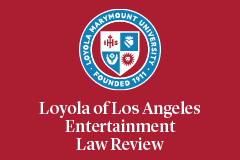Abstract
This Comment examines the waiver doctrine, which requires the government to reveal information it could normally withhold under an exemption of the Freedom of Information Act (“FOIA”) because the information is deemed to have already entered the public domain. The Comment begins by tracing the origin of FOIA as an improvement upon the inadequate Administrative Procedure Act. Second, the Comment discusses the competing tests used in determining when information has entered the public domain—the D.C. Circuit’s permanent public record test and the Ninth Circuit’s unlimited disclosure test—as well as their application in a case involving the film Zero Dark Thirty. Next, the Comment argues that the D.C. Circuit’s test frustrates the purpose of FOIA, and that the Ninth Circuit’s test offers an alternative that can allow for greater dissemination of information without unduly threatening legitimate privacy interests. The Comment closes with a recommendation that Congress should amend FOIA in order to clarify the public domain doctrine by officially adopting the Ninth Circuit’s unlimited disclosure test.
Recommended Citation
Kayla Berlin,
Let Freedom Ring: Broadening FOIA's Public Domain And The Applicability Of The Waiver Doctrine,
35 Loy. L.A. Ent. L. Rev. 63
(2015).
Available at: https://digitalcommons.lmu.edu/elr/vol35/iss1/2


